Libya - hard-won independence
Because the prevailing point of view
the most general impression is that
that the desert is deserted.
That nothing prevails in the desert.
That the desert is emptiness.
And it is not.
In fact, the desert has everything.
Ibrahim al-Kuni, Libyan writer
From antiquity to the century of world wars
If the countries were people, with their difference in types and life experience, then Libya would fit into the image of a wise old-timer here. Imagine a dark, warm southern night, a fire, a circle of like-minded people who have gathered after a hard, hot day to listen to the story of a wise old man. Yes, he's seen a lot...
Which peoples have not left their mark on the Libyan stories! The first cities in Libya, in its western part, were founded by Phoenician sailors around 1100 BC. Their names are poetic, like a sunset over the Mediterranean Sea - Labdah, Sabratha, Eya ...
In the XNUMXth century BC e. These cities were conquered by Carthage. Around the same time, Greek colonists entrenched themselves in the east of Libya. In the south, in the deserts of Phazania (now this region is called in the Arabic manner - Fezzan), a kingdom of mysterious Garamants arose (what did this people look like, what language did they speak, what social system did they have - all these questions still remain unanswered). One way or another, Carthage soon fell victim to Rome, and with it the Libyan cities. Under Roman rule, the historical division of Libya into western (Tripolitania) and eastern (Cyrenaica) regions finally took shape.
But Rome, contrary to the saying, is not eternal. After the collapse of the Roman Empire, Tripolitania became part of the kingdom of the Vandals and Alans. The Byzantines who came from Cyrenaica defeated the Vandals and returned Libya under the wing of Roman civilization. But they did not triumph for long - by 643 the country was completely conquered by the Arabs. Its population was Arabized and Islamized.
So Libya became part of the Muslim world. In the Middle Ages, a single state did not develop on its lands, and in 1551 the country was conquered again - this time by the Turks.
Ottoman power in Libyan territory was largely nominal. The Janissary commanders, dei, disposed of real power in the localities. They got on well with the Arabs and became imbued with the Arabic language and culture. They simply thought - the Sultan is far away, and things must be done here and now. “Business” consisted in sea and pirate trades - at that time in the region it was a reliable source of income, albeit not a very plausible one. However, in the eyes of a Muslim, robbing the ships of the "infidels" was not considered something reprehensible.
The Libyan governors of the Sultan have grown quite fat (in every sense) on free corsair bread. At the beginning of the XNUMXth century, they declared their de facto independence from the Sublime Porte, founding the Karamanli dynasty. The state of Karamanli extended its influence to Tripolitania, Cyrenaica and a significant part of Fezzan. So the Janissaries and corsairs became the actual founders of the Libyan statehood in its modern recognized borders.
The history of the state of Karamanli deserves a separate story, which, on occasion, will be told to the reader. It existed for more than a hundred years, and it was ruined by a change in the political situation in the world - after the Napoleonic Wars, the European powers and the United States jointly restored order in the Mediterranean Sea.
The pirate trade has come to naught, the gentlemen of luck have already become, remembering a replica from the legendary film, not up to romance ... Here, as it were, stretch one's legs! But the self-proclaimed Libyan monarchs failed to turn the tide. The dynasty fell into decline and was liquidated by the Ottomans in 1835. Istanbul again subjugated Libya.
The restoration of Ottoman rule brought mixed results. On the one hand, trade revived in the country, new industries appeared, and long overdue reforms were carried out. On the other hand, the Ottoman attempts to "westernize" Libya, ignoring the norms of Islam, along with a rather harsh suppression of any desire for independence, embittered the local Arabs. Resistance to Istanbul matured among the tribal leaders and the religious brotherhood of the Senusites. The Muslim Brotherhood had a particularly strong influence in Cyrenaica and in the countryside, where the peasants and desert nomads were distinguished by sincere religious zeal.
Bloody XX century and the desire for freedom
At the beginning of the XNUMXth century, Libya (under the name "Vilayet of Tripoli") remained one of the few islands of stability in the Ottoman Empire. There were no wars here, no major uprisings that shook the other possessions of the weakening Porte. Time seemed to stop in Libya, the patriarchal life of the people flowed like a majestic and calm river, where everyone remained in his own business - the fellahs cultivated a narrow strip of fertile land on the seashore, merchants traveled with caravans to the Sahara, Turkish officials were bored in the shady rooms of their residences. But that was the calm before the storm.
In the fall of 1911, the flames of war fell on Libya. The Ottoman province was attacked by Italian troops. Their goal was the lightning-fast and decisive occupation of Libya and its annexation to the Italian colonial empire. Lightning war, however, did not work out. Instead, a bloody and protracted war came out, quickly sliding into a positional dead end.
Together with the Turks, tens of thousands of Arab volunteers from all regions of Libya fought against the Italians. But the Ottoman Empire was already too weak to afford to wage a war of attrition for a poor and peripheral province in Africa. Even against Italy...
In October 1912, the Turks and Italians made peace, and Libya was actually transferred to the full disposal of Rome.
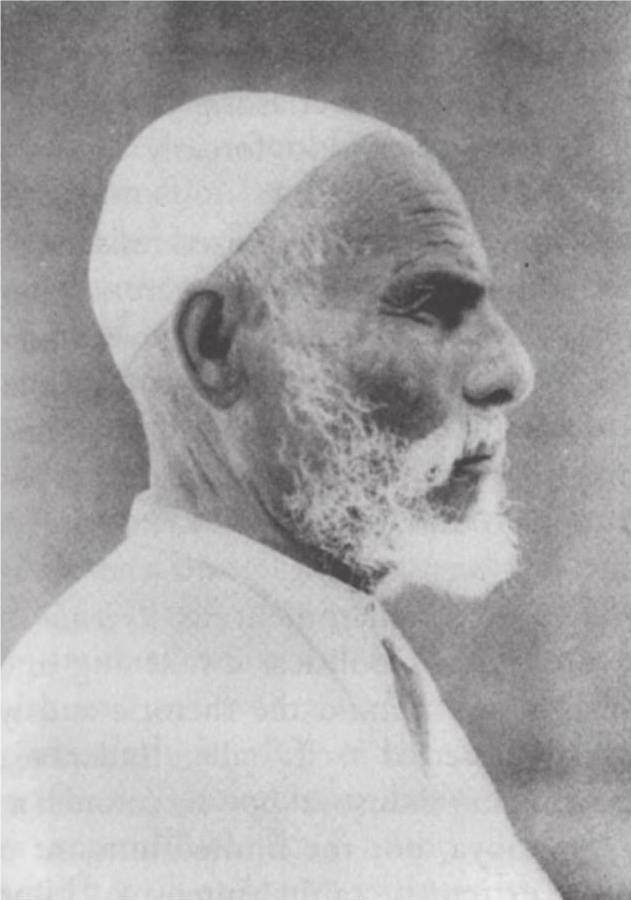
The Libyan partisans continued their desperate and heroic resistance to the colonialists, preventing them from getting out of the coastal enclaves. Soon a world war began, and the Italian army withdrew most of its reserves to Europe. This allowed the Libyan insurgents to regain control of the country by locking the Italians in several major cities.
The end of the Great War and the revolution in Russia gave the conquered peoples hope for a more just world based on democratic principles. Western leaders have talked a lot about the right of nations to self-determination. Borders changed, new states appeared on the political map. On this wave, on November 16, 1918, Libyan patriots proclaimed the independence of the Tripolitan Republic with its capital in the town of Gharyan. But they soon became convinced that democracy does not work for everyone.
Catastrophe - Italian conquest of Libya
The proclamation of the Tripolitan Republic did not make any impression on the world community. Most countries don't even know about it. And Italy, as the victorious country in the First World War, was given a complete carte blanche to "restore constitutional order" in its completely legal colonial province. What the Italians did with pleasure.
The Libyans staunchly resisted the colonial troops. But they had no chance of winning. Power changed in Italy, the fascist government actively re-equipped the army, and the conquest of Libya was declared a matter of national importance. Against armored vehicles and shock aviation, heavy artillery and chemical weapons the Libyan insurgents, armed only with rifles, were completely powerless. By 1932, the Italian army had established complete control over Libya. The rebel leader Omar al-Mukhtar was captured and hanged in the Suluk concentration camp in front of a crowd of thousands.
For the Libyans, the Italian conquest was a national disaster. Since 1911, 550 (!) residents of Libya have been destroyed by the colonialists, and about 200 more have fled the country. In a vast territory that could fit Germany and France together, in 1932 there were only 704 thousand people. Try to comprehend these figures and you will be able to assess the full scale of the disaster that has befallen this long-suffering land.
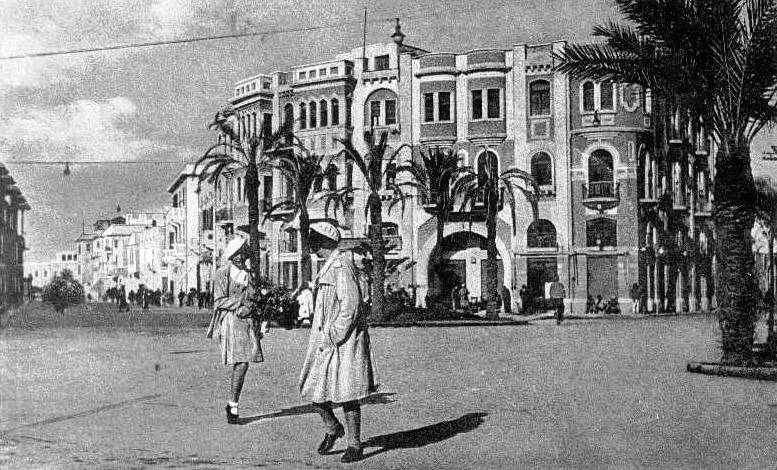
But the wisdom of the ages says that there is nothing unambiguous in history. So the Italian colonialists, having bled and ruined Libya, suddenly radically changed the vector of their policy. The time for repression is over. By order from Rome, the concentration camps where tens of thousands of Arabs had previously been held were closed. Everyone who could read and write was guaranteed full civil rights. Cultural clubs were opened for urban youth, theaters and hotels were built in Tripolitania. In Libya, a tourism and cultural recreation industry has emerged - something that was previously unimaginable. In order to win the respect of Muslims, new mosques were erected, destroyed Islamic shrines, tombstones and mausoleums were restored.
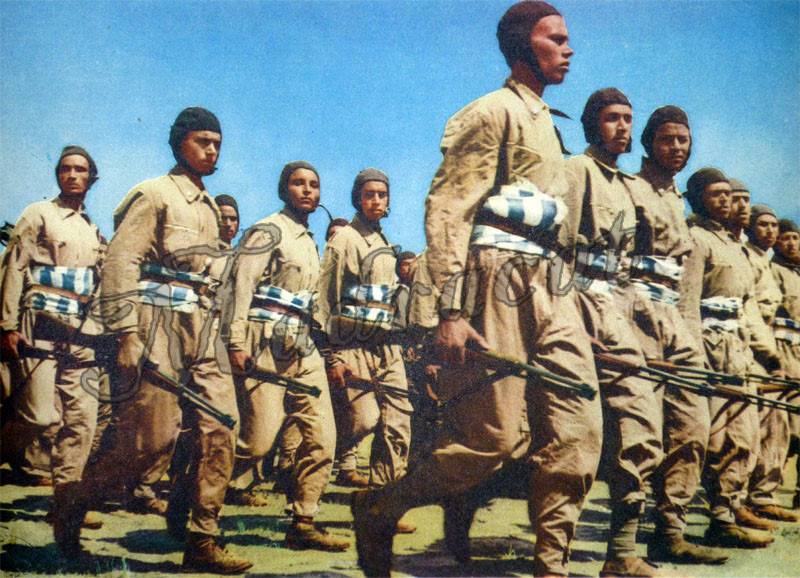
But not only mosques. The Italians launched a colossal infrastructure, housing and agricultural construction in Libya. From west to east, the first-class highway Via Balbia, about 1 km long, was laid. Now from the border with Tunisia to Egypt could be reached by car. The area of arable land grew, modern farms were built with new equipment. They, of course, were intended mainly for the Italian colonists, who by 800 in Libya lived about 1939 thousand. But part of the farms was transferred to the Arab fellahs.
In addition, the Italians built 10 "model" settlements for Muslims - each of which had a mosque, a school, sports grounds, a cinema and a rural hospital. All these measures, despite the indescribable horrors of the recent colonial war, made it possible to soften the attitude of the local population towards the Italians. By the beginning of World War II, about 30 Libyans were already serving in the Italian army, and some even joined the fascist party.
Hard-won independence
During World War II, Libya became the scene of fierce and protracted fighting. Simple numbers will give the reader an idea of their intensity. During the war, 127 battles took place on Libyan soil, in which 1,5 million soldiers and officers took part. The territory of Libya was subjected to 3 air raids. Warring armies have laid more than 128 mines here. Infrastructural damage exceeded $300 billion. The country was completely ruined, and the population was impoverished and eked out a miserable existence.
After such sacrifices, Libya deserved, if not compensation for damage (it never followed), then at least a chance for a peaceful future. This chance was given by the country's independence, in the struggle for which hundreds of thousands of Libyans have already given their lives. But this was very difficult.
During World War II, the Western powers turned Libya into a huge military foothold. Only in the south of Libya, 27 military airfields of the French Air Force were built. British bases were located in Tripolitania and Cyrenaica, and near Tripoli the Americans built a large airfield, Wheelus Field. The future NATO allies did not want to part with all this splendor.
The British relied on Idris-as-Senusi, the leader of the Senussi brotherhood and a very respected aristocrat among the people. Idris was a gifted politician, certainly a strong leader and had great influence in Cyrenaica. True, he spent more than 20 years of his life in exile. Idris, in turn, saw the British as a counterbalance to French and Italian policy in the region. Formally abandoning its claims to Libya, Rome did not leave hopes for a political revenge in its former colony. The French, completely unashamed of anyone, occupied Fezzan and did not intend to leave it. The Americans also played their game in Libya, insidiously maneuvering between the parties of the neo-colonial division.
This big game reached its climax in April 1949. Then the foreign ministers of Great Britain and Italy, Bevin and Sforza, agreed on a draft resolution on the future of Libya. The “Bevin-Sforza Plan” proposed dividing Libya into three parts (“take everything, but divide!”): Give Tripolitania to Italy, Cyrenaica to Britain, and leave Fezzan to the French. The United States pledged to act as mediators in this dubious case. The plan was terrible in its cynicism - Libya was given to the joint occupation of the NATO bloc.
Much to the regret of the "Western partners", their project did not materialize. Mass riots flared up in Tripolitania, curfews had to be introduced in the cities and almost all institutions and shops were closed, the crackling of automatic bursts was heard on the streets every now and then - the British garrisons "calmed down" the raging people. The country was threatened with a massive uprising. In this situation, even Idris, loyal to the West, did not dare to support the Anglo-Italian resolution. In addition, the USSR consistently advocated a united and independent Libya, which could come to the aid of local patriots. NATO had to change the concept on the go.
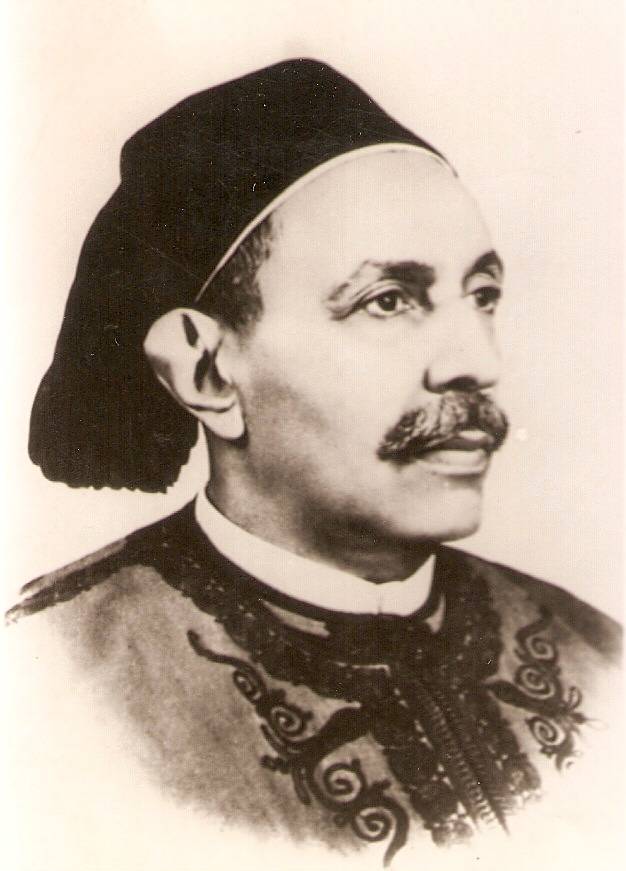
In June 1949, the British recognized the independence of Cyrenaica under Emir Idris. However, this did not have much effect, since the rest of the patriotic movements of Libya, in particular in the more populated Tripolitania, did not recognize any attempts to fragment the country. The patriots saw the future of Libya in different ways, arguing about monarchical and republican forms of government, unitary and federal structure, but they all stood up for a single and indivisible country.
The process got off the ground in November 1949, when a UN resolution decided to grant independence to Libya until January 1, 1952. The National Assembly was convened, which established in Libya the creation of a federal state headed by a constitutional monarch. Idris-as-Senusi became the monarch, for lack of more suitable candidates who could suit everyone. Now he is King Idris I, and his state is the United Kingdom of Libya.
Kingdom of Libya
On December 1951, XNUMX, the new state officially received its registration in the club of independent powers. He had two capitals, Tripoli and Benghazi, as a symbol of the unity and equality of Tripolitania and Cyrenaica. The king himself lived in Benghazi with his family and numerous retinue.
The legacy of King Idris was not the most luxurious. And that's putting it mildly. Libya was one of the world's poorest countries, with an economy barely showing signs of life. Industry existed only in the city of Tripoli, where a tobacco factory and canneries operated. The king also had few subjects - according to the 1954 census (during which the inhabitants of Libya were forbidden to leave their homes - sit and wait until everyone was enumerated), no more than 1 million 100 thousand people lived in the country. This number did not include desert nomads (how do you catch them?) and foreign migrants who came to seasonal work from Tunisia. The fate of national minorities also remained unclear - about 45 thousand Italian settlers, as well as Greeks, Maltese and Jews. In a state that declared itself Islamic at the level of the Constitution, their future remained vague.
However, King Idris was a fairly tolerant person (in the good sense of the word) and rather alien to aggression and violence. He always preferred to negotiate. The king did not suit the persecution of minorities, and in foreign policy he pursued a line of orientation towards the Western powers and non-interference in the affairs of neighboring countries. This had its pluses and minuses - without expelling the foreign military from Libya, Idris lost credibility in the eyes of his subjects and in the Arab world.
On the other hand, multimillion-dollar Anglo-American payments for the lease of military bases made it possible to keep the economy afloat. Good relations with the West also guaranteed stable support from international financial organizations. Western engineers and geologists have been fruitfully working on the development of mineral deposits in Libya. It was these works that were destined to change the face and history of the young state.
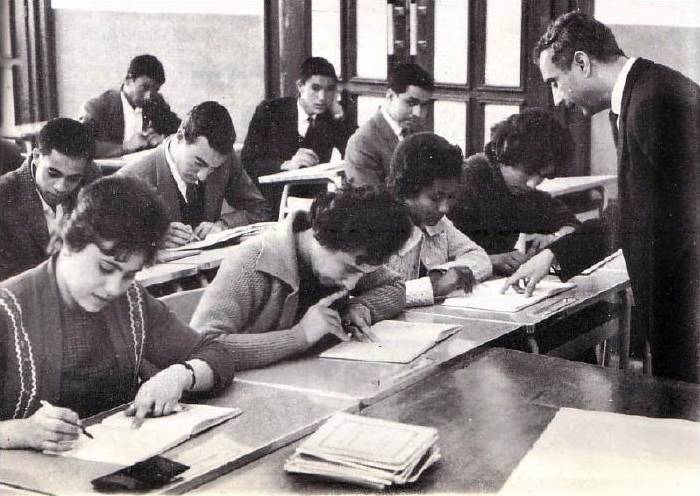
Black gold and the end of royal rule
Libyan oil exploration has been carried out by American specialists at the invitation of the king since 1955. The main condition was an even distribution of income from production - 50 percent of the mining company and 50 percent of the state. The work has borne good fruit. In 1961, the oil industry brought $3 million in revenue to the budget. Over the next eight years, oil exports increased by more than 151 times (!), reaching a figure of 151,7 million tons. Libyan oil production even managed to exceed that of Saudi Arabia. It was a real oil boom.
From the poorest country, Libya has rapidly transformed into a dynamically developing young nation. Already in the first few years of the oil boom, more than a hundred thousand Libyans were involved in the work of the national industry. Employment in agriculture decreased by 80 thousand people. Urbanization proceeded at a rapid pace. And by 1964, 24 percent of Libya's population lived in cities, and that number continued to rise. The total population of the country has almost doubled. Yes, Libya was entering a new era of its development.
But in this new era, there was no longer room for old approaches. The restructuring of the country's economic base also brought to life drastic political changes (here it is time for the Marxists to triumph - their theory about the basis and superstructure found its confirmation here). And these changes were not long in coming.
The dissatisfaction of the population with the policy of King Idris grew. He was charged with many charges - both misappropriation of oil revenues, and insufficient support for the struggle of the Arab world against Israel.
How is it that the richest Libya remains aloof from the uncompromising war against Zionism? Such questions were asked by many officers of the Royal Army. And it was from their midst that the most rigid opposition to the monarchical regime came. The group of "Free Officers" from Cyrenaica, consisting of Muammar Gaddafi, Abdel Jelloud and Abu Bakr Yunis Jabber, proclaimed as their goals the complete withdrawal of foreign troops from Libya, radical reforms of the social order and the policy of Arab solidarity.
"Free officers" have achieved their goal. On September 1, 1969, they organized a military coup, which was a brilliant success and was supported by the army. King Idris was deposed and took refuge in Cairo. The old, monarchical Libya is dead. It gave way to a republic, another page of Libyan history was turned over, a completely new, truly unique, painfully contradictory era in the life of an ancient state lay ahead. It definitely deserves a separate, detailed story. Well, our African trip ends today.
Sources and literature:
1. Egorin. A. Z. History of Libya, XX century - M .: IV RAS, 1999.
2. Proshin. N. I. History of Libya in modern times: (Mid-XVI - early XX century) - M .: Nauka, 1981.
3. Vidyasova. M. F. Libya. Where is the country of 140 tribes going? – M.: Sadra, 2019.
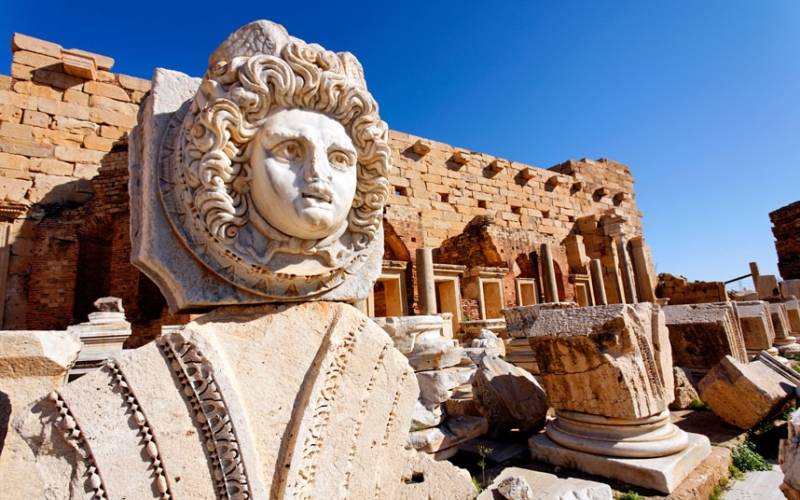
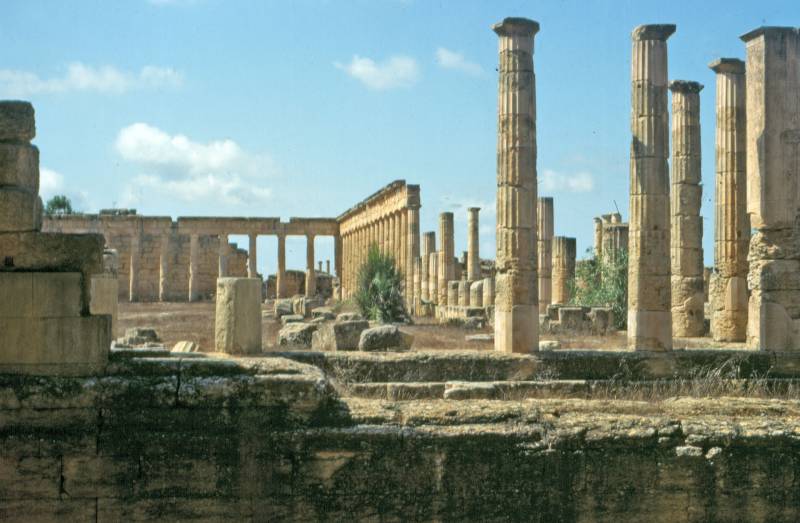

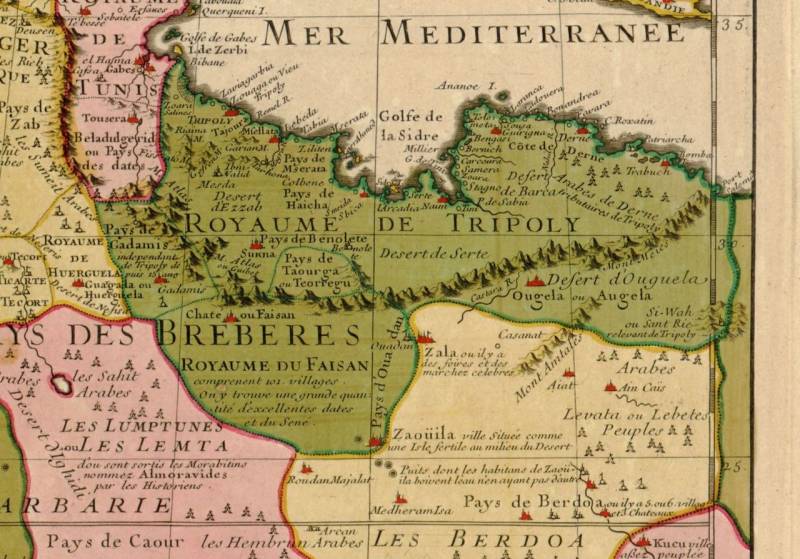
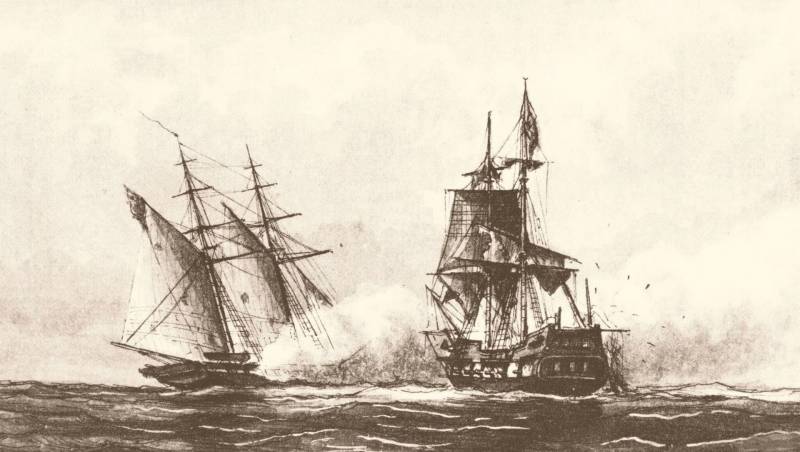
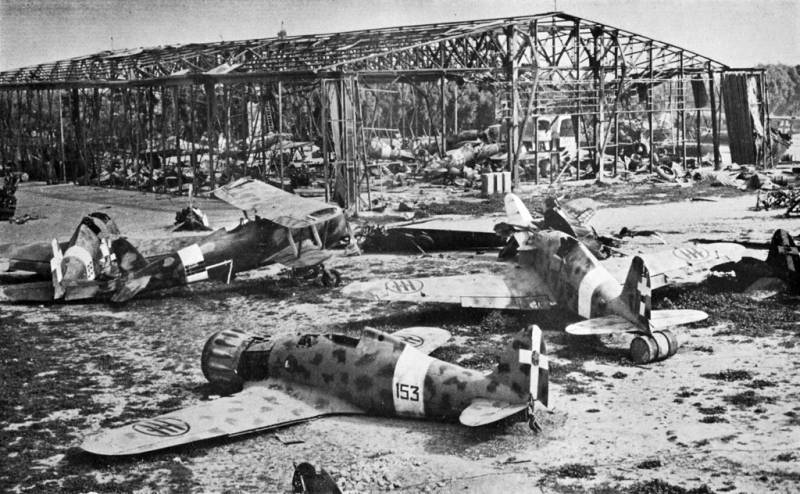
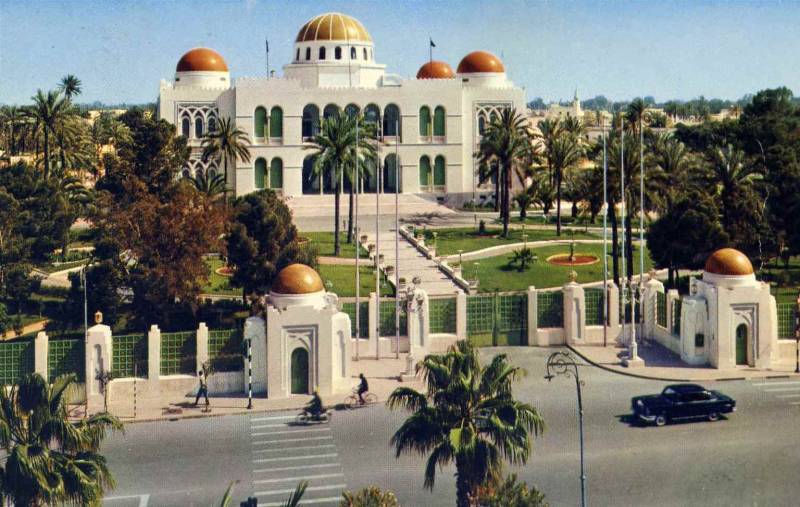
Information